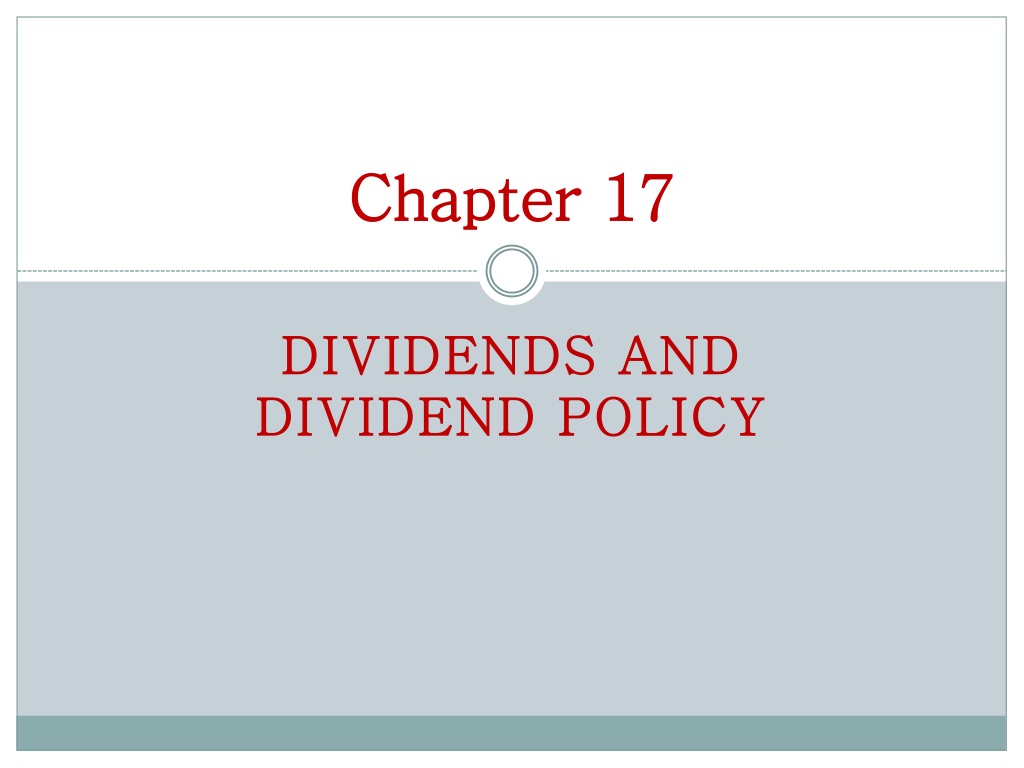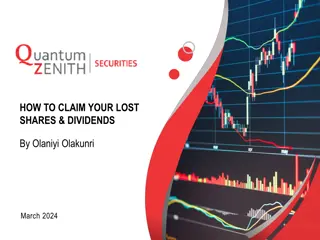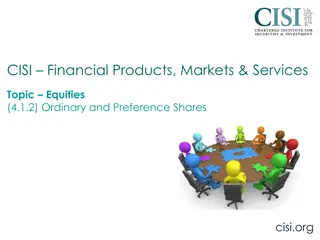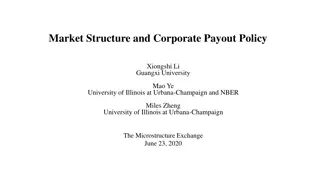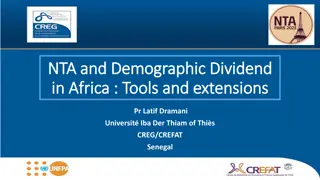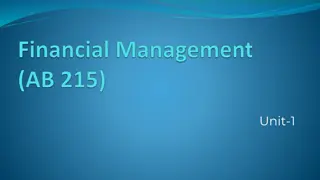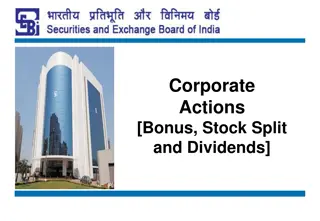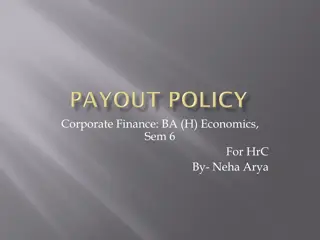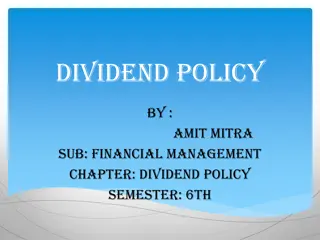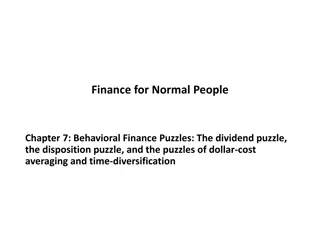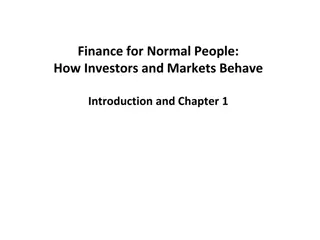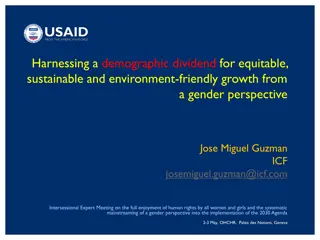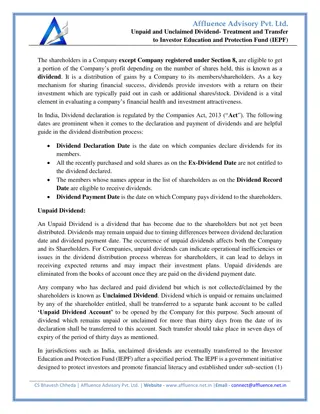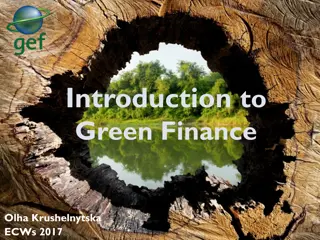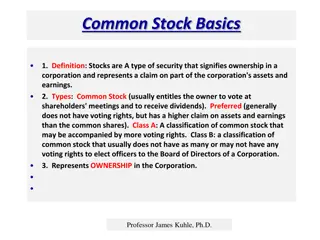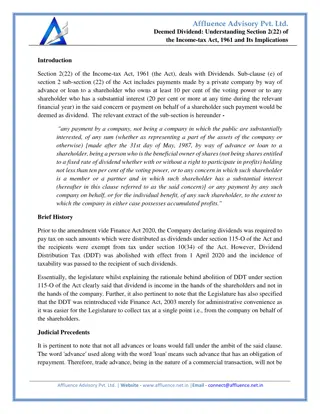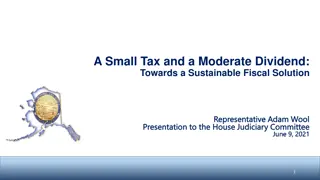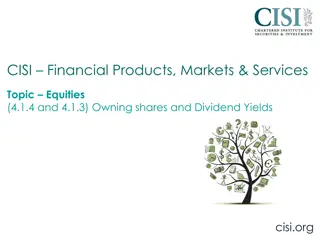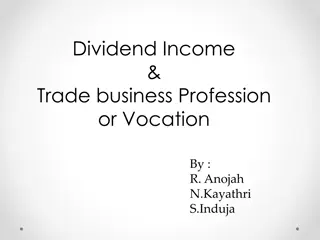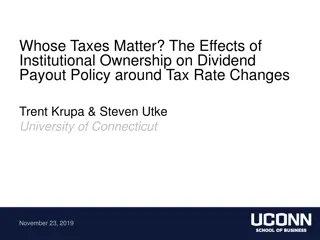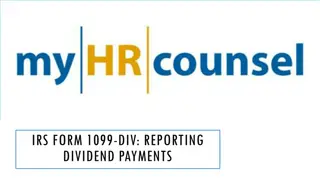Understanding Dividends and Dividend Policy in Finance
Explore the significance of cash dividends, dividend forms, dividend payments, and the impact of dividend policy on a company's stock value. Learn how dividend policy decisions can affect shareholders and the firm's growth potential. Understand concepts like low payout benefits and high payout considerations in dividend policy.
Download Presentation

Please find below an Image/Link to download the presentation.
The content on the website is provided AS IS for your information and personal use only. It may not be sold, licensed, or shared on other websites without obtaining consent from the author. Download presentation by click this link. If you encounter any issues during the download, it is possible that the publisher has removed the file from their server.
E N D
Presentation Transcript
Chapter Chapter 17 17 DIVIDENDS AND DIVIDENDS AND DIVIDEND POLICY DIVIDEND POLICY
Cash Dividends & Dividend payment Dividend: cash paid out of earnings Distribution: cash payment from sources other than earnings
Dividend forms: Regular cash dividend cash payments made directly to stockholders, usually each quarter Extra cash dividend indication that the extra amount may not be repeated in the future Special cash dividend similar to extra dividend, but definitely will not be repeated Liquidating dividend some or all of the business has been sold
Dividend Payment Dividend per share 1. 2. Dividend yield 3. Dividend payout
Does Dividend Policy Matter? Dividends matter the value of the stock is based on the present value of expected future dividends Dividend policy may not matter Dividend policy is the decision to pay dividends versus retaining funds to reinvest in the firm In theory, if the firm reinvests capital now, it will grow and can pay higher dividends in the future
Illustration of Irrelevance Consider a firm that can either pay out dividends of $10,000 per year for each of the next two years or can pay $9,000 this year, reinvest the other $1,000 into the firm and then pay $11,120 next year. Investors require a 12% return. If the company will earn the required return, then it doesn t matter when it pays the dividends
Low Payout Please Why might a low payout be desirable? Individuals in upper income tax brackets might prefer lower dividend payouts, given the immediate tax liability, in favor of higher capital gains with the deferred tax liability Flotation costs low payouts can decrease the amount of capital that needs to be raised, thereby lowering flotation costs Dividend restrictions debt contracts might limit the percentage of income that can be paid out as dividends
High Payout Please Why might a high payout be desirable? Desire for current income Individuals that need current income, i.e., retirees
Dividends and Signals Changes in dividends convey information Dividend increases Expectation of higher future dividends, increasing present value Signal of a healthy, growing firm Dividend decreases Expectation of lower dividends indefinitely; decreasing present value Signal of a firm that is having financial difficulties
Clientele Effect Some investors prefer low dividend payouts and will buy stock in those companies that offer low dividend payouts Some investors prefer high dividend payouts and will buy stock in those companies that offer high dividend payouts
Implications of the Clientele Effect What do you think will happen if a firm changes its policy from a high payout to a low payout? What do you think will happen if a firm changes its policy from a low payout to a high payout? If this is the case, does dividend policy matter?
Stock Repurchase Company buys back its own shares of stock Tender offer company states a purchase price and a desired number of shares Open market buys stock in the open market Similar to a cash dividend in that it returns cash from the firm to the stockholders
